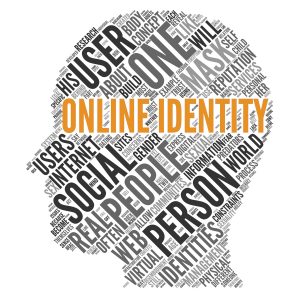Conversations
Establishing a Brand for Yourself: A look into online identity management
By Robert Michon
July, 2016

Updated August 4, 2016
For as long as there has been commerce, there has been branding. We tend to accept corporate brands as a normal part of life, but in recent years, many individuals have leveraged the wide reach of the Internet to actively market themselves as brands. These “personal brands” allow anyone to achieve widespread recognition through the power of social media, whether for professional purposes or just for fun. As with anything, personal brands have their own benefits and dangers, but if you’re active on social media, you likely already have a fledgling brand of your own. It might be time to think about what your own brand says about you.
What Exactly Is a Personal Brand?
Rather than marketing a specific product, a personal brand allows you to market yourself as the product, ideally leading to job opportunities, a wider social circle and/or some degree of fame or recognition. This might seem like an absurd scheme cooked up by a generation who spends a bit too much time online, but people were crafting personal brands long before the Internet came about. Salvador Dali is as famous for his wacky looks and antics as he is for his artistic works, Martha Stewart and Oprah Winfrey both built commercial empires for themselves based on the brand power of their names and we all know the name Kardashian—even though some of us are amazed why. So, no, the rise of the Internet didn’t create the idea of personal branding; it just made it easier for non-celebrities to participate and find a wide-reaching audience.
The brands themselves can take any form but are essentially a combination of everything that makes an online personality unique. You might have a specific way of writing or punctuating your sentences, or maybe you have a common theme to all of your posts. Any regular behaviour, intentional or unintentional, that contributes to how you are perceived online can be considered part of your brand. It isn’t a resumé or list of likes and dislikes. A personal brand lives and breathes, is actively maintained and even changes over time, just like someone’s real personality would.
But just as is the case with celebrity brands, personal brands of everyday people aren’t necessarily true to life. They’re better thought of as representations. Since branding is essentially a marketing tool, people who craft personal brands online are most often presenting an idealized version of themselves, amplifying positive or interesting character traits, while downplaying the negative aspects. This might seem dishonest or deceptive to some, but it mirrors how we behave in the real world. When applying for a job or trying to impress a new acquaintance, you want to present the best version of yourself possible. Once you land the job, or as you get to know your new friend a little better, you gradually open up and let these once unfamiliar contacts get to know the “real” you. If your personality exists online, however, new people are constantly visiting your page, and so the facade must remain in place.
In many ways, personal branding is the online version of the classic cocktail party. People attend those parties to network, to make a name for themselves and to get noticed. In the online world, that cocktail party never ends, and instead of impressing a handful of other guests, you need to impress a global audience.
The Advantages of Branding
Though online personal branding may still be in its infancy, it already has many clear advantages over traditional networking and self-promotion. There are many people around the globe who are already reaping the rewards of their online brands.
St. Albert’s Aberdeen Nault is one such person. Through his online branding on social media sites, Nault has been able to promote his writing and activism and has become known both locally and internationally. Nault’s online brand achieved offline recognition fairly early on.
“When I was in high school, there was a graffiti artist in town who was attracting a lot of controversy,” he says. “I thought the art was kind of beautiful, so I went around taking pictures of all the graffiti pieces I could find. I posted them on my Instagram feed, and not long after I was contacted by a newspaper to give my perspective on the whole thing.”
And that wasn’t just a fleeting brush with fame, either. Nault continues to be contacted by people around the world because of his growing online personality. “Online branding can help you meet a lot of friends and like-minded people from around the world. I’ve made a lot of friends in the States through my online presence, and I even get asked to fly down to places like Chicago to participate in different events.”
Theodore Fox is a poet and writer who has built his entire career through his online personal branding. “Through Twitter, I’ve met everyone who has ever published or hired me,” he says. “If what you’re selling, in my case poetry, doesn’t have a big market locally, social media really allows you to reach out to a global audience to find supporters.” Once people started to recognise Fox’s online brand, many local opportunities began to open up for him. “If you can show that you already have an audience and supporters, companies will be more interested in working with you.”
The Dangers of Branding
Of course, there is a darker side to branding as well, one that keeps many people away from engaging with social media entirely. Fox has run into many of these dangers himself, “Because branding is so personal, or at least gives the illusion of being personal, a lot of people start to think that they know you, and that the two of you are friends in the real world. This can lead to a lot of inappropriate exchanges.” These exchanges can be hard to avoid, too. In terms of harassment policies, social media sites are largely unregulated, and many who attempt to make a name for themselves online can find themselves the victims of verbal abuse or even threats. Reporting this behaviour rarely yields results, and blocking the account does not stop anyone from simply creating another account to start the harassment anew.
Branding yourself can also put an unwanted spotlight on family and friends who would prefer to remain anonymous online. When documenting your life on social media, it seems natural to include those who are a part of your life, but attempts to force them into your online persona can lead to strained relationships.
And then there is the dreaded “celebrity effect,” where personal branders begin to gain a false ego or elevated opinion of themselves. Therein lies one of the main arguments against personal branding—that it leads to superficiality and a breakdown of real relationships. When everyone is trying to gain as much influence as possible, “real” personal connections can sometimes fall by the wayside, and people can start to appear disingenuous. Of course, the risk of this celebrity effect taking hold depends entirely on the self-awareness of those involved. And everyone has bad days and blind spots.
Crafting a Brand
Even if you have no aspirations to become Internet famous, thinking about personal branding within your small list of contacts can still be advantageous. Whether you want it to or not, every post you make on social media will influence the way people think about you, and as Nault points out,
“Branding can give you some degree of control over how others perceive you. We all have good days and bad days, but when you’re presenting yourself online, nobody has to see those off-days.”
Theodore Fox built his brand from the ground up and learned a lot in the process. He has a few tips from his own experiences that may help when planning your own brand. “Its important to think of it as work,” he says. “There is a social aspect, but if you’re trying to promote yourself, you have to focus and work hard at it. If you’re trying to promote a specific skill or aspect of yourself, make sure to remind people of it periodically, but also keep in mind that most people aren’t interested in being friends with an advertisement. Have a personality, exaggerate the interesting parts of yourself. Start small, talking about the things you’re comfortable with. But don’t be afraid to let your brand go where it will, to let it breathe and wander.”
Internet literacy is obviously crucial as well. “Every social media site is different and requires a different approach,” says Fox. “You need to study each site individually and get to know the culture and behaviours that exist there. What is successful on Twitter won’t -necessarily work on Facebook.”
It’s also helpful to have a specific quality or attribute that you’re known for. For Nault, it’s his green hair. “People see my hair and immediately recognize me as ‘that guy from the Internet.’ You need to have that thing that -people associate with you alone.” And that association could be anything from being passionate about human-rights issues to being a snail enthusiast. Fox has seen people build names for themselves online with identities as strange as “that guy who writes jokes about vacuum cleaners” or “that girl who draws snakes using punctuation marks.” It isn’t necessarily about being wacky or controversial. It’s about building brand recognition, and it’s the same reason that companies like Coca-Cola have had the same image for the last century.
Legal Considerations
As the Internet is still fairly young, the laws that govern content ownership and identity might best be described as “in the works.” You might think that each individual retains ownership of his or her brand, but that isn’t -necessarily the case.
Most social media platforms ask us to read a terms and conditions page when we’re creating an account. Most of us, however, just skim the content. But contained within those walls of text are sections that state the social media company, be it Facebook, Twitter or Instagram, retains ownership of your posts. It isn’t clear whether or not these ownership policies will ever be enforced or if they would hold up in a Canadian court if challenged, but for now, it is wise to remember that your content can be shared—or even sold—without your permission, and that even the posts you’ve deleted are saved within the company’s servers.
Brand theft is another unexplored area of the law. While it is against the law in Canada to steal the identity of another person, impersonating a brand is another matter. Hackers and imitators can do major damage to your online brand if they wish, but as you aren’t technically the owner of that brand, and since that brand isn’t necessarily the real you, the legal rights and protections of your brand can be unclear. At this point, a strong and protected password is your best defence.
While the laws on ownership of content can be murky, Canadian law does guarantee a right to privacy. Protected posts and information online cannot be accessed by employers or law enforcement, and you are under no obligation to share any content that you would rather keep hidden. That said, employers can and will Google your name before they hire you to try to get as much information as possible, so if your brand is something that you think they may not approve of, make sure to set your privacy settings to keep those posts hidden from all but your desired audience.
For many of us, the idea of having to consciously brand ourselves can seem like one more headache that we’d rather do without. But the reality is that just by existing on social media, you’re already influencing the way that people think about you. So even if fame and fortune are low on your priority list, it might be worth taking some time to make sure that your online reputation, no matter how big or small, is the one you want it to be. t8n
Fun Fact
Online identities begin young. Around 92% of children under the age of two already have a social media presence, and by the time they turn five, the average child will have 1000 photos of themselves shared online.
Did You Know?
About two-thirds of Canadians are active on social media, and that number is rising every day.
Sources for statistics.
92% of children having a social media presence: http://www.cnet.com/news/study-92-of-u-s-2-year-olds-have-online-record/
1000 photos before age five: http://www.wsj.com/articles/should-parents-post-photos-of-their-children-on-social-media-1463968922













